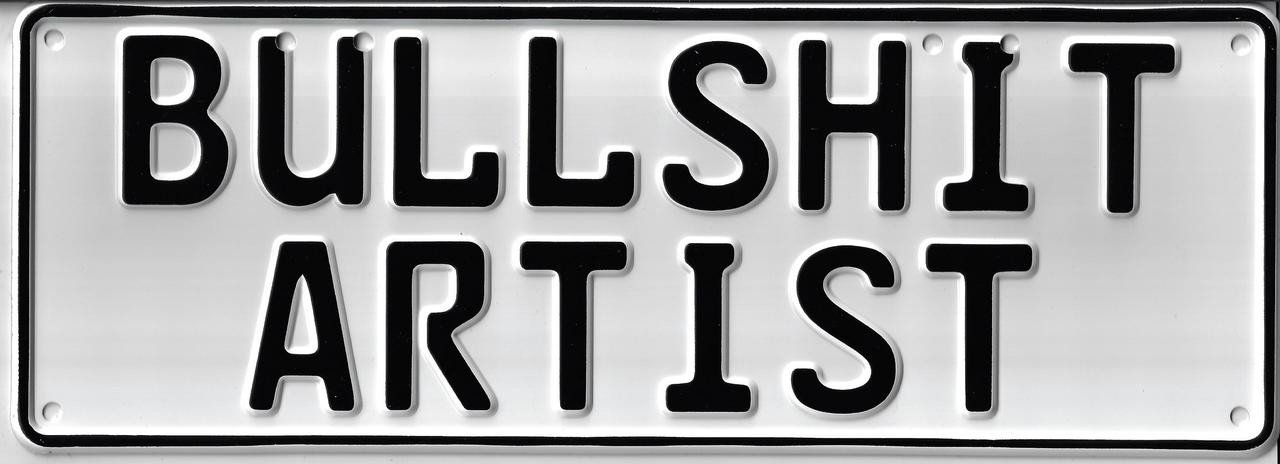The Feel of a Word: artist
My interest is in the very Australian way in which artist is used ironically to denote someone who behaves in a certain specified way, as in a booze artist, a con artist, a bullshit artist. But to talk about that we need to go back into the history of the word in British English.
The word artist was borrowed into English from Middle French, in the time of the Norman Conquest. In Europe artist traced its history back to the Latin ars meaning ‘skill’. In English in the 1500s an artist was someone who possessed a craft or trade, as opposed to the common workingman who just turned up and did what he was told.
The meaning generalised in the 1500s to cover anyone who was expert or proficient in any activity, but finally settled on someone in the creative arts who performed with flair and imagination. By the 1600s an artist mostly excelled in the visual arts, although it was and is still possible to describe someone as an artist in their field. An IT person could be an artist in writing code. A beer maker could be an artist in brewing.
Not only creative, virtuous and knowledgeable people could be regarded as artists. Crooks and criminals could be artists as well. The first meaning on the dark side of artist was ‘someone who practices deception and cunning’. The Artful Dodger was a pickpocketing artist. By the end of the 1800s artist in American and Irish English was a synonym for ‘rogue’.
Australians and New Zealanders picked up the American meaning, someone who is known for some specified behaviour, usually one that is reprehensible or excessive. It is always said as a slur on someone’s character.
In the early 1900s artist could be used freely with various suggested activities, so we have instances of the use of pigskin artist (a jockey), gyp artist (a swindler), and leg-shake artist (a pickpocket). A bog artist was someone who talked a lot about a subject of which he knew little. To bog was to talk at length from the depths of one’s ignorance. It is a small piece of Essex dialect that fetched up on our shores.
We had the standover artist and the strong-arm artist, both specialising in threats and exploitation.
There were some accepted phrases. A fag artist was someone who smoked a lot, in the days when that happened. A booze artist was and is someone who drinks alcohol, often beer, to excess. A metho artist was an alcoholic prepared to drink methylated spirits, usually with fruit saline. A bash artist was someone prone to getting into fights with other people. A con artist is someone who specialises in confidence tricks or scams.
But the one that is at the top of this pile of artist combinations is the bullshit artist. As a character remarks in Holden’s Performance by Murray Bail:
‘If it’s one thing the Austrylian [sic] people don’t like it’s a bullshit artist.’
There is a variant which preceded bullshit artist and that is bull artist, defined in The Dinkum Aussie Dictionary:
Bull artist: short for bullshit artist. An unpleasant liar who is much given to personal boasting about his cleverness. A member of federal parliament.
The word bullshit, as a contemptuous dismissal of what someone else has said, probably came into being in the early 1900s alongside the terms bullswool and bulldust probably used as euphemisms. These last two words had a real meaning before they were used as substitutes for the offensive bullshit. There was actual stuff, a coarse hairy fabric, called bullswool. The bulldust was so named because if your vehicle was caught in it, it was very hard to get out. Bull was used as an intensifier indicating strength, as in bull wire, heavy duty wire.
We cannot leave artist without mentioning the comparable use of merchant as in speed merchant or hot-air merchant or spin merchant. This parallels the use of artist but comes from a theatrical tradition where people who specialised in particular styles or genres were described in this way, usually as a put-down. You had the low-comedy merchant, the slapstick merchant. The in-slang of the 1890s in British English was to call the theatre itself the shop, so then the specialists in the trade were the merchants.
